The weigh-in was over, and the young racers and their cars were now at the top of Derby Hill. The stands, once loud with chit-chat among spectators, fell silent as the first two racers lined up their cars behind the gate. The racers slipped into their motor-less, handmade, wooden vehicles and stared forward at the descent ahead.
Steve McCann started the countdown — “five four three two one” — a loud thud was heard as the derby cars were released from the starting gate. The cars, each weighing up to 200 pounds including the driver, gained speed and soon zoomed past the stands where spectators watched. About 10 seconds later the cars crossed the finish line, the scraping sound of their metal brakes against the ground being drowned out by cheers from the stands.
The two racers exited their vehicles and high-fived each other before moving their cars off the track to prepare for the next race down West Paris’ Derby Hill.
It was earlier this month, July 9, and West Paris residents had gathered for the first of three downhill derby race days spread out across the summer. Hours before wheels touched the track that day, Steve McCann — whose own boyhood was filled with soapbox derby car building and racing — was there setting up the race and preparing for the day.
As race organizer, McCann brings an unmatched level of enthusiasm and passion to the racing events each summer in what has become a longstanding tradition in this small Oxford County town. “I’ve always wanted to run a derby,” McCann said, “but I didn’t want to do it until I felt I could do it right.”
Judging by the growth, the audience turnout and the level of enthusiasm for the West Paris Downhill Derby, McCann’s doing it right.
“These races do a really good job with bringing people together,” Amanda Ilsley, son of racer Nathan Ilsley, said on that race day. “After COVID, being able to get together like this again to watch this race is really something special.”
“It’s a lot of fun, coming to the hill once each month during the summer,” added Amanda Palmer, mother of derby racer Cameron Palmer. “It’s a great environment here, everyone is always so sweet and welcoming. It’s a great way to spend a Saturday. It’s also competitive, but it’s not nasty-competitive.”

Racer Steven McCann, 14, and volunteer Tim Hutchisen talk to driver Cameron Palmer, 11, after the final race of the West Paris Downhill Derby July 9. McCann had just won the race, and Palmer had come in second. Andree Kehn/Sun Journal
BUILDING SPORTSMANSHIP AT AN EARLY AGE
Those involved with the pastime point to its influence on building character and sportsmanship as one of its benefits. McCann recounted the final race day last year when an issue arose with the timing equipment; it kept clocking the racer in lane 1 as always being a second faster than the racer in lane 2 regardless of how fast the racer in lane 1 went.
Unable to fix the glitch and without any quick alternatives, McCann decided to hold a coin toss that allowed the racers to pick their lanes in each heat. It was acknowledged that whoever won a toss and picked lane 1 would win.
McCann’s son, Steven, whose car was the fastest on the other two days of racing earlier in the summer, lost both coin tosses in the two races he ran, eliminating him from the competition and ultimately placing him third overall for the season despite his earlier victories and fast car. But instead of being upset about his results, he got out of his car to congratulate the other competitors.
The sportsmanship extends to the parents and spectators as well. “It’s not like a baseball game where parents will yell at the umpire if they’re mad about a call,” said McCann. “The parents that we have here each summer are just fantastic. I actually even consult with them during the races.”
Referring to that same timing equipment problem last year, McCann said, “I went to the dads of the racers and told them, ‘The only way I see us finishing this is if we have a coin toss.’ Well, they completely agreed, because it was the most fair for each of the kids.”
From talking to the people in West Paris, it’s clear sportsmanship is just one of the many draws of soapbox derby racing in this small town. The sport’s history and the lasting memories it creates are two more.

Nathan Ilsley, 8, skips up the hill July 9 as Tim Hutchisen pushes Ilsley’s car up the hill for a test run in West Paris. Ilsley was the smallest competitor, which made his car the heaviest. All cars and drivers meet a 200-pound weight target. Andree Kehn/Sun Journal
FROM DAYTON, OHIO, TO WEST PARIS
The town of West Paris first established Derby Hill in 1965 and welcomed young aspiring racers, picking up on something newsman Myron Scott started 32 years earlier 1,000 miles away in Dayton, Ohio.
In 1933, Scott saw a group of boys racing homemade cars down a steep hill in Dayton. He was so impressed, he patented the idea and organized races in Akron, Ohio, known for its hilly terrain. The event grew in popularity and was not without its notoriety over the years, including a national cheating scandal and a runaway car striking popular radio host Graham McNamee. The event soon spread across the nation and can now be witnessed around the world, with races held in the United Kingdom, Germany and Japan, as well as other Maine venues.
In West Paris, the hill where racers still race was first established and paved in 1965, making it one of the only dedicated soapbox derby tracks on the entire East Coast. The town has seen periods since 1965 when no races were held, with many years of racing in between.
In 2015, after a break, leaders began reorganizing the program and McCann has overseen it since 2016 with energy and commitment. Both the canopy over the stands and a new starting mechanism were built by McCann, hoping to enhance the races, attract more racers and entice more spectators.
And he makes it clear he wants to keep the tradition alive. And a tradition it is.
“I would tie my bicycle to the front axle of my derby car and I would bike over on race day,” says derby volunteer Ken Lamb, reminiscing. “One year, my brother and I were both pulling our cars to the hill when his stopped. That’s when someone driving by offered to load his car in the back of their truck and drive him to the derby. Well, they left me to pull my car the rest of the way to the track, and after that day, I didn’t root for him for a long time,” Lamb added with a chuckle.
Other times, pulling his car through town wasn’t so bad. “My hangout as a teen was Ray’s autobody shop. I first met Ray when I was dragging my derby car past his shop. He yelled out to me from inside and said, ‘Hey kid, come here, you want your car painted?’ Of course I said yes, and we became close ever since that paint job.”
As you’d expect, organizer McCann has many of his own fond memories of soapbox derby. “This derby shaped who I am,” he said. “My dad was great. He would come to everything, and back in the ’70s he showed up with a group of his friends who got the program started back up again.”
McCann recalls how he would ask his father to buy him the parts for his car, and then young McCann would assemble them himself. “I wasn’t going to have a car unless I built it myself, so I did,” he said, noting his father was a big supporter but lacked handyman skills.

Nathan Ilsley, 8, gets out of his soapbox derby car after a weigh-in confirmed the combined weight of car and driver did not exceed 200 pounds. Helping were, from left, volunteer Eric Palmer, volunteer Tim Hutchisen, and race organizer Steve McCann. Andree Kehn/Sun Journal
“IT’S NOT LIKE DROPPING YOUR KIDS OFF AT A SOCCER GAME”
Part of the tradition of soapbox derby is parents and children working together, and the West Paris derby is all about it. Often, that involvement includes designing and building the car together, but on race day it also means loading and unloading the derby cars, pushing them to the weigh station and making last-minute adjustments to the cars before they’re sent speeding down the hill. And spectating of course.
Eric Palmer, father of Cameron Palmer in car 77, recounted his favorite moment while attending the derby throughout the years. “I think the time my son won his first race,” said Palmer. “He was so excited that he jumped out of his car and ran up to hug me.”
Shane Green, grandfather of Cameron Palmer, said he’s now watching his grandson race on the same hill he raced down when he was younger. “I love it,” said Green. “I get a lot more nervous than when I used to race, because he does so well, and I just want to see him do well and have fun.”
When asked why he gets nervous, Green said, “Last year, he got beat a few times, in some of the races, so him and his dad took the car back home to work on it and he ended up winning the championship.”
“Something I always tell people is it’s not like dropping your kids off at a soccer game and going to the stands to watch,” said Joseph Barr, a national Downhill Derby director from Arlington, Massachusetts. “For soapbox derbies, the kids and the parents get to spend so much time together planning, building, and then racing the car.”
Soapbox Derby also gets respect for what it quietly teaches about science, Barr said.
“Soapbox derbies are starting to focus more on the STEM aspect, so that schools will be able to feature the study and build up the program,” said Barr, adding, “It teaches kids so much about engineering, physics, and science. It’s such a great hands-on learning experience where kids really have fun while they’re learning.”
Amanda Ilsley, mother of racer Nathan Ilsley, agrees. “I think, especially with boys, they like hands-on learning. They really learn more when they’re able to do something hands-on. They don’t really know that they’re learning, so all they see is that they’re having fun.”
“This is analog, it’s not digital,” said Tim Hutchisen, derby volunteer and a master certified auto technician. “A lot of these kids have built their own cars, in fact we encourage them to work on their own cars. It’s a safe and fun way to get kids outside and away from their screens. It’s a great opportunity for these kids that a lot of kids in other areas don’t get. But here in West Paris, Maine, kids get that experience.”

Race organizer Steve McCann gives a pep talk to drivers on July 9 before the start of the West Paris DownHill Derby, outlining the rules and expectations for conduct during the races. The drivers, from near to far, are Tyce Sawyer, Nathan Ilsley, Karson Hewins, Cameron Palmer (obscured), Steven McCann and Paige Canedy. Andree Kehn/Sun Journal
LOOKING TO THE FUTURE
The hope among many soapbox derby supporters is that the program continues to grow in West Paris.
“It makes me a little sad to look in the (storage) shed. We have more cars than drivers today, and that’s wrong. Every one of those cars should be racing down the track. Hopefully we’ll get to that point soon,” said Hutchisen.
That’s McCann’s hope too. In addition to the things he and supporters have already done, he’s contemplating opening up new divisions to accommodate both younger and older racers.
One of the things he’s not going to do is set up the West Paris event as a qualifier for national competition. “We could apply to become a qualifying track for national, but that would actually exclude almost all of our own racers, because they don’t have cars that would qualify.”
National circuit rules mandate things such as how long axles can be and how often new sets of approved wheels must be installed, which because of the additional labor and cost could exclude kids who may want to participate.
Becoming a national qualifier could also make the races more competitive and take some of the fun and camaraderie out of the event.
And fun is ultimately what it’s all about.
“I like the people who come and help out every year. They do a great job organizing it all so it’s fair and fun for everyone,” said Tyce Sawyer (car 7), when asked what he has enjoyed about soapbox derby racing over the last seven years with his friend Steven McCann.
“It’s a cool experience coming down here to race. It’s free. And, well, it’s just a lot of fun every year,” said McCann (car 23), who is derby director Steve McCann’s son.
Sawyer added: “It’s something fun to do on a summer day. We just get to have fun and race.”
Green, the grandfather and former racer, encourages children and parents to try it out. “It’s a great thing for the whole family, everybody gets involved. It doesn’t matter girl or boy, it’s friendly competition, it’s a fun experience, and everybody roots for each other. It’s a great thing they do here in West Paris.”
There will be two more race days this summer — Aug. 13 and Sept. 10.
Send questions/comments to the editors.

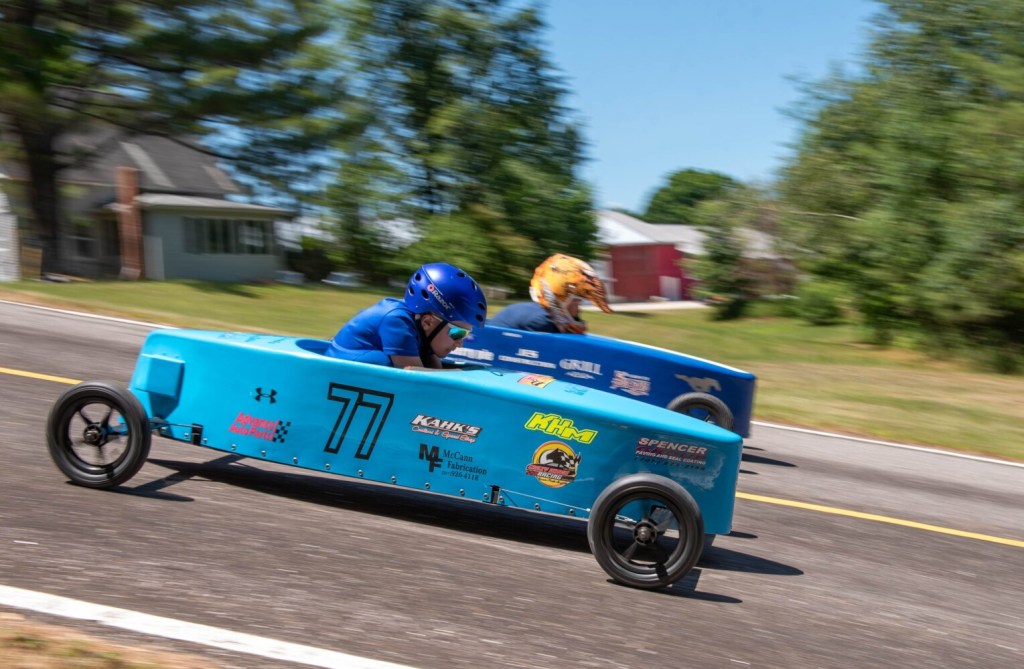
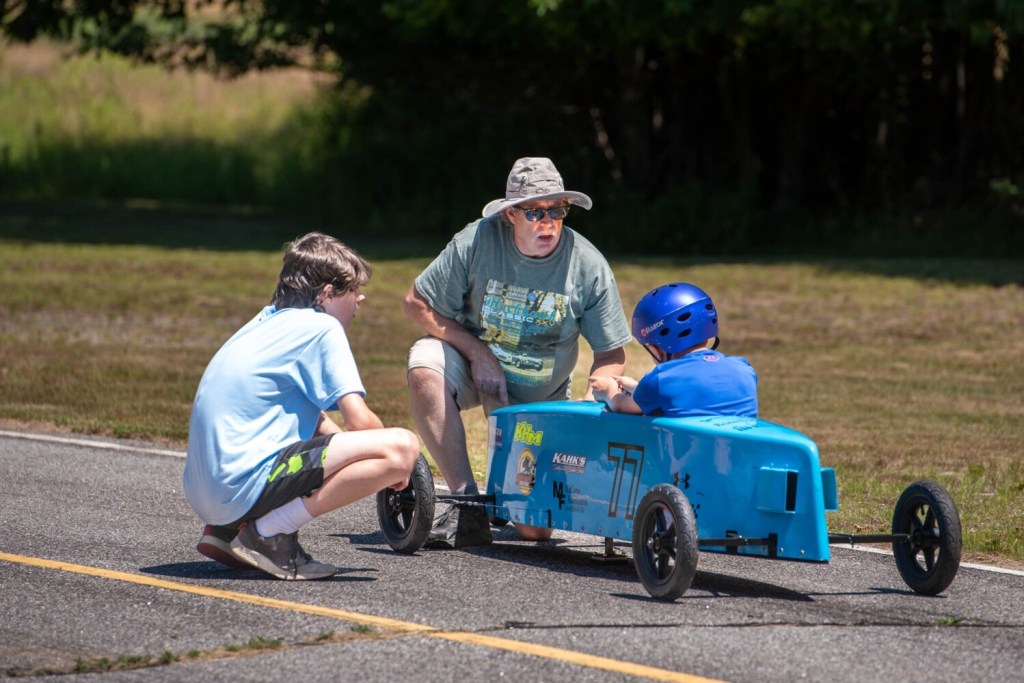
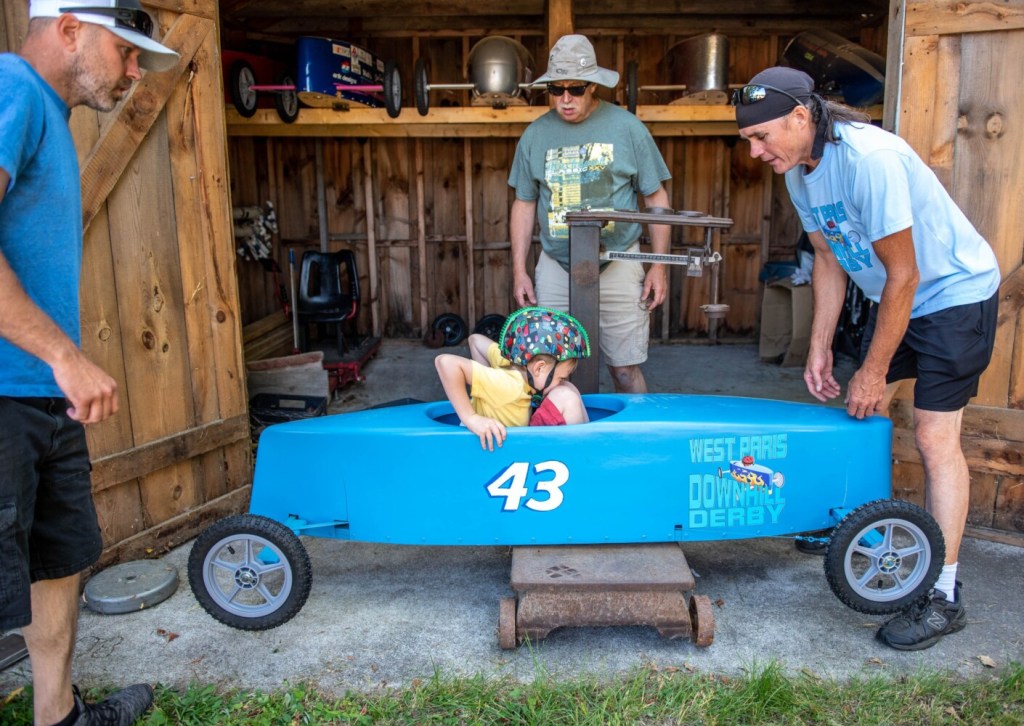
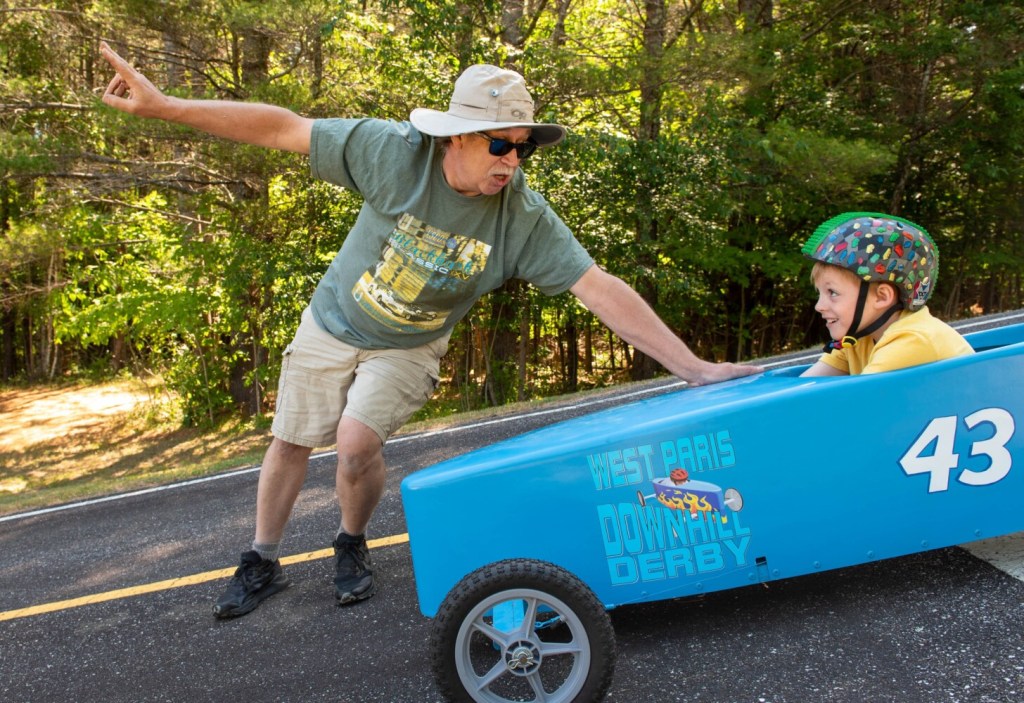
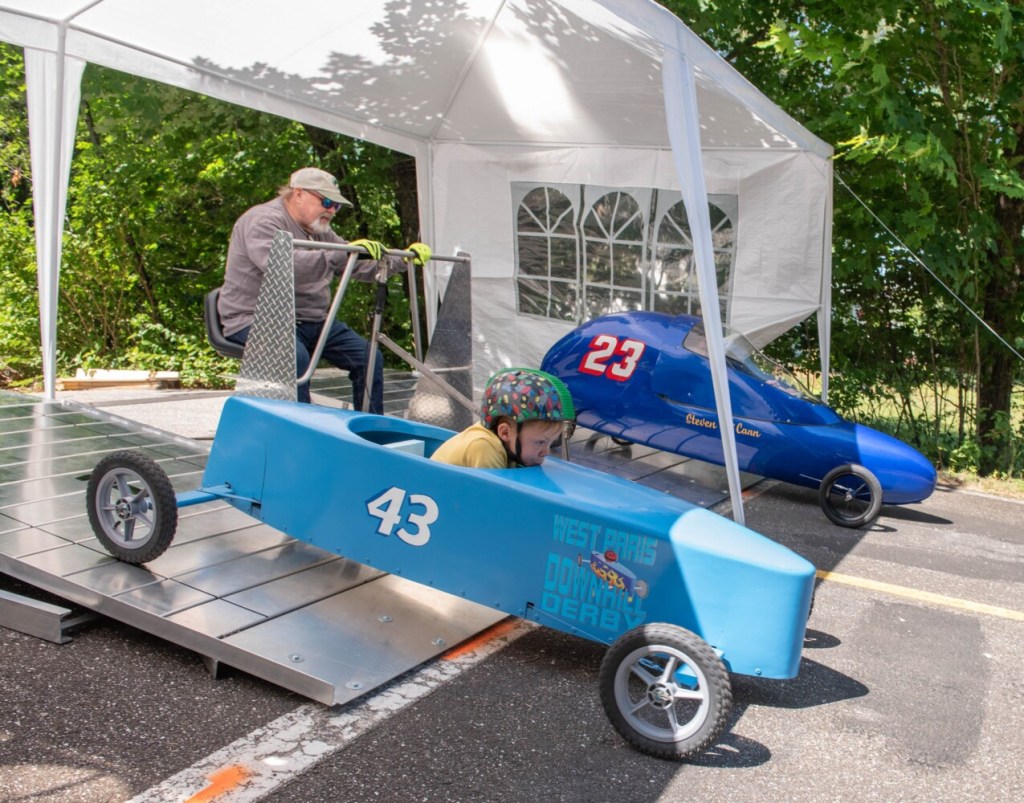
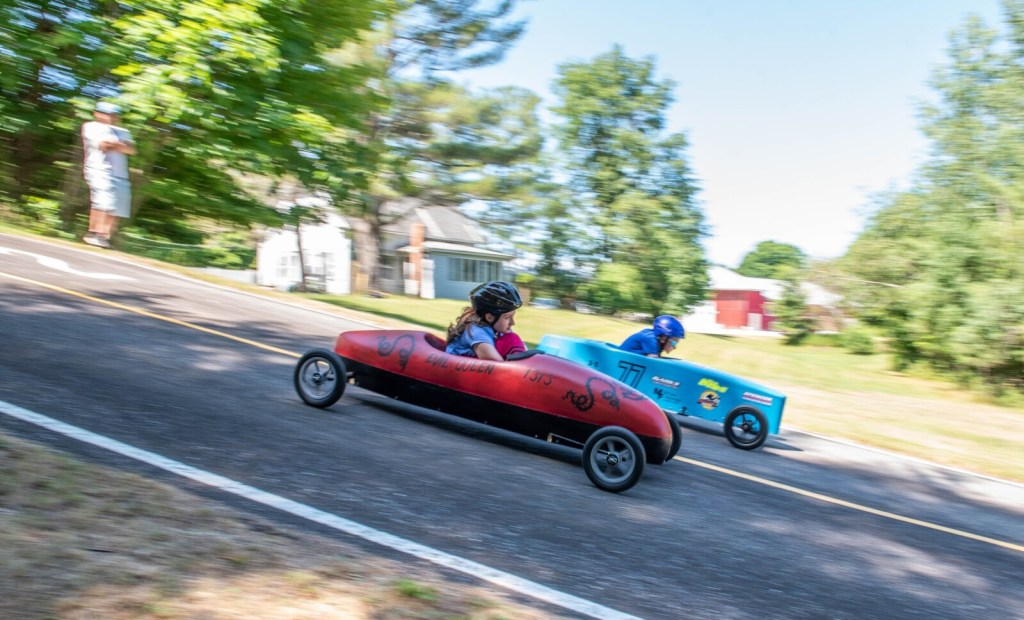
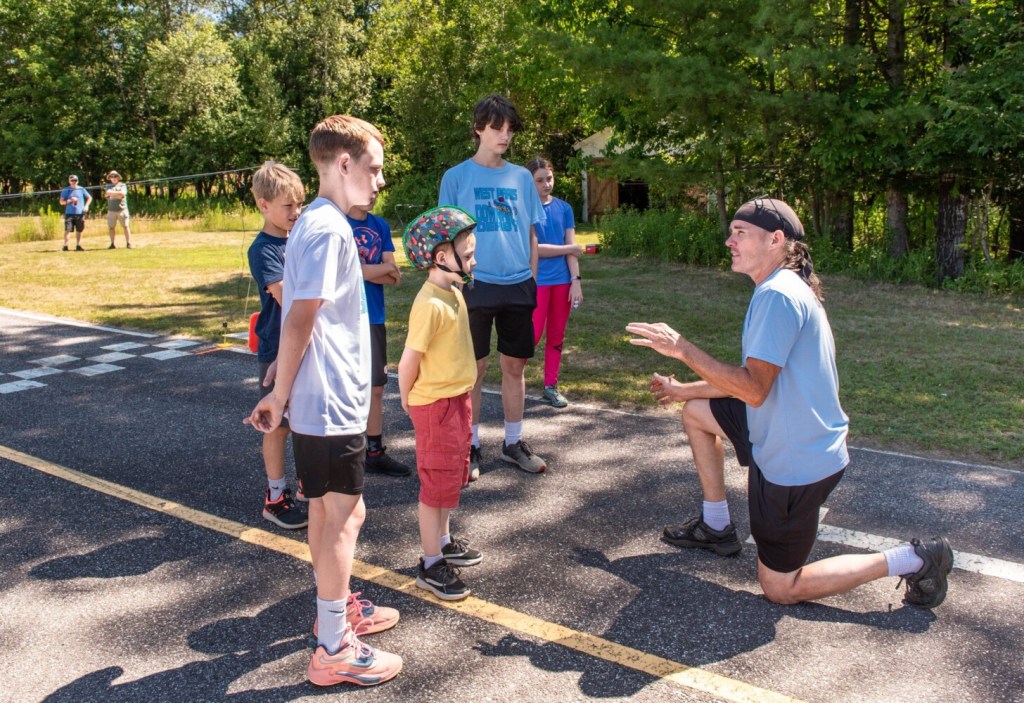
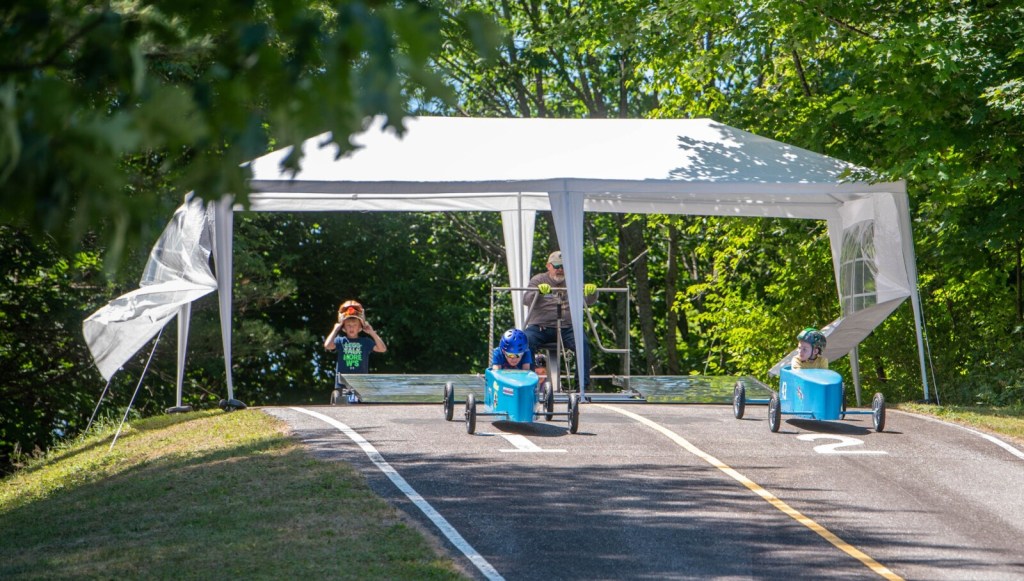
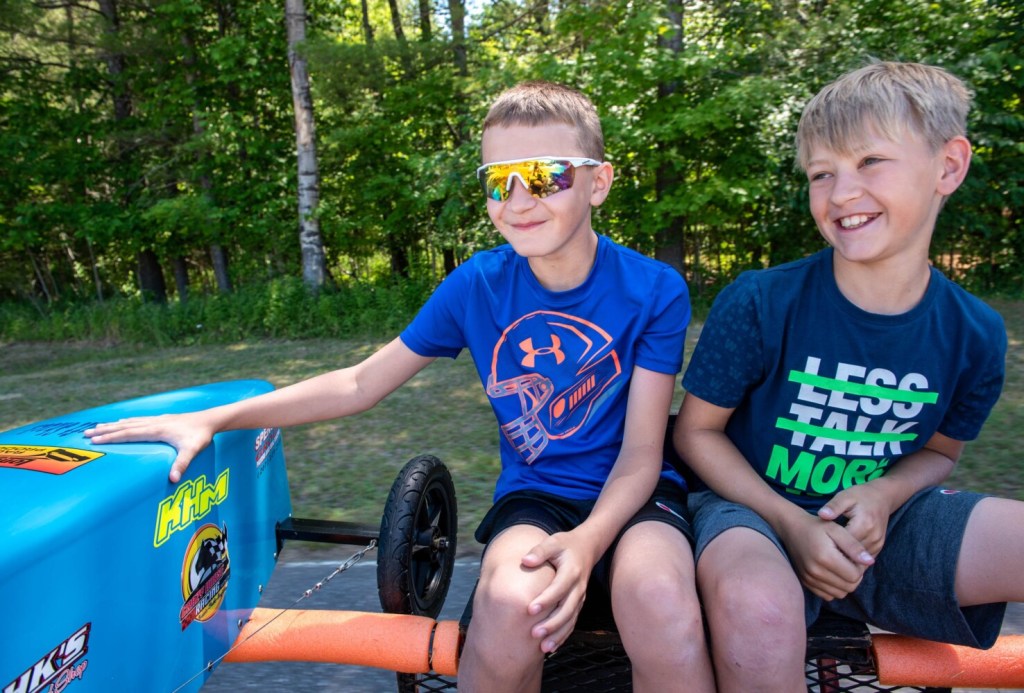
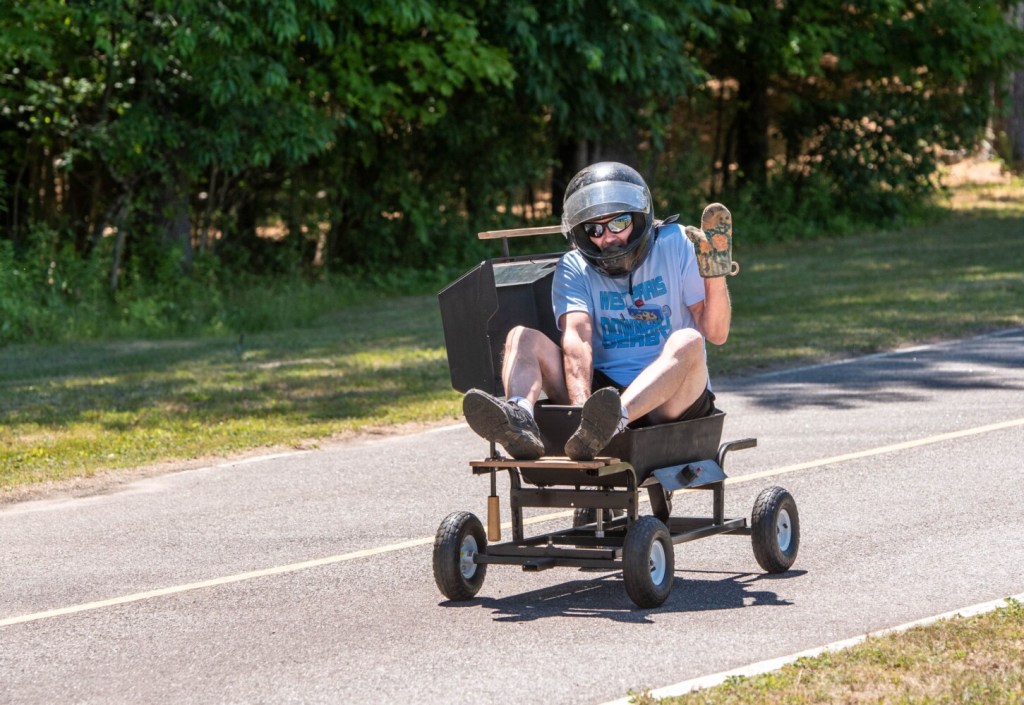
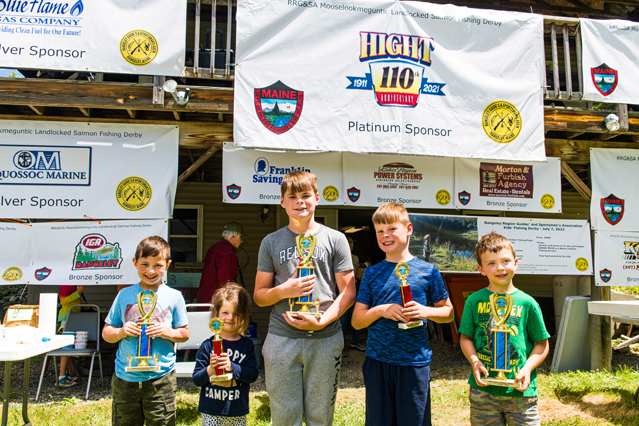

Comments are no longer available on this story